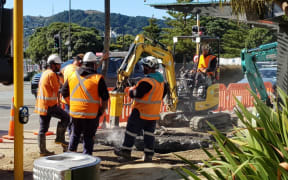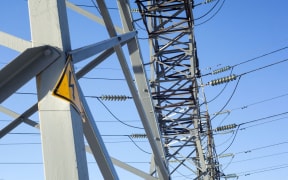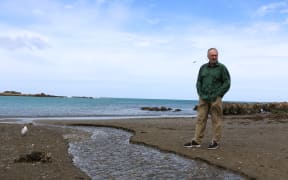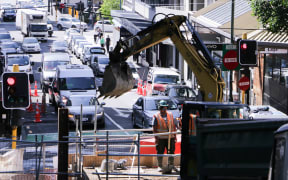The end date for repair works to a damaged water pipe in Wellington has been pushed back due to the Covid-19 coronavirus.
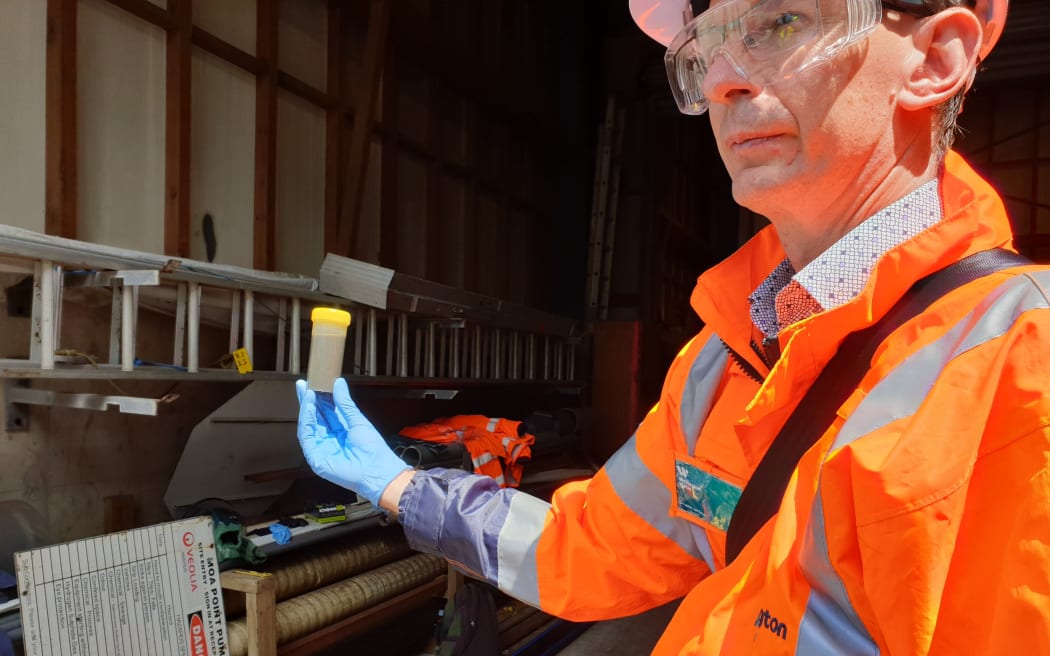
Steve Hutchison from Wellington Water holding some sludge. Photo: RNZ / Jonathan Mitchell
Two pipes, which transported sludge from the Moa Point treatment plant to the landfill, failed in January.
The short-term solution was to transport the sludge by truck, with about 120 return trips every day.
The long-term solution was the installation of a polyester woven liner - the first of its kind in Australasia - produced in Germany.
However, the delivery of this component has now been postponed until mid-May.
"This is a high-quality, robust and resilient solution that will get the pipelines back up and running, and reduce the risk of further bursts," Wellington Water chief executive Colin Crampton said.
"It's a high-tech specialist product which is not manufactured in New Zealand. Unfortunately, due [to] the importance of protecting their workforce and community from the spread of Covid-19, production at our supplier's factory has slowed."
He said the business restrictions imposed by the German government meant the delivery date has been delayed.
The polyester woven liner is now expected to be delivered in mid-May, and it would take eight days to install it from when it arrived.
Network development general manager Tonia Haskell said it could be longer or shorter than that.
"Ideally, we would bring it forward, but the logistics work against us," she said.
"Longer is always possible - this situation is developing daily. But we're really going towards mid-May, and the supplier is being incredibly helpful to us, so we are really pulling together on this one."
She said there were obstacles getting in the way of a timely delivery.
"The supplier has talked to us, and they have put our material on priority, but they've had to go to split shift at their factory, so they're literally working half the time that they would've. So it is going to take longer to get.
"Then we have to get the material and the people to install it out to New Zealand, and clearly, we need to do the right isolation [practices], and all of that good stuff before they get here."
